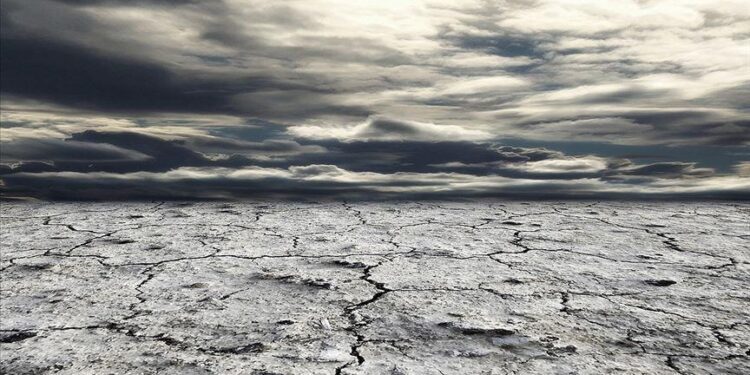KARACHI, Pakistan
A senior World Bank official on Thursday warned of “too many” deaths if required climate change finances are not met.
“There will be too many people who die if we wait for the Global North to put on the table all of the money that they morally probably should,” said Valerie Hickey, the global director for climate change at the World Bank.
Speaking at an international climate change conference “Breathe Pakistan” in the capital Islamabad, Hickey said: “To move from $100 billion to $300 billion, it sounds like a lot of money. It’s not. Most of it is in lending. It’s not in grants. Most of it is already there. It’s not addition.”
At the Climate Summit (COP29) in Azerbaijan last November, the parties proposed a figure of $250 billion in climate financing by 2035.
Mohamed Yahya, UN resident and humanitarian Coordinator, in his remarks, observed that climate change is no longer a “distant threat.”
“Climate change is no longer a distant threat. It is happening now. As (UN Secretary-General) Antonio Guterres has recently stated, ‘We are on a highway to climate hell with our foot still on the accelerator’,” he said.
Noting that global emissions were still on the rise, he highlighted how extreme weather events such as droughts, wildfires and floods were becoming “more frequent, intense and more devastating.”
Recalling the 2022 monsoon floods which submerged a third of Pakistan, Yahya said that a disaster “of this magnitude should have been a wake-up call for the world, yet the emissions continue to rise.”
“We must demand climate finance that is predictable, accessible, adequate and fair. The era also of corporate and national impunity must come to an end. Our secretary-general has called on polluters to do more to be part of the solution,” he maintained.
Justice Mansoor Ali Shah, a senior judge of the Supreme Court of Pakistan, noted that the Global South, including Pakistan, contributed the least to the global emissions but bore the brunt of it.
“Pakistan is a frontline state of climate catastrophe and is ranked among the top-five most vulnerable countries to experience extreme weather events,” he added.
“I don’t need to go into examples, but floods and disasters … in 2022, floods submerged one-third of the country, displacing 33 million people and causing $30 billion in damages, exposing the urgent need for climate adaptation and finance,” he went on to say.
Pakistan’s Planning Minister Ahsan Iqbal remarked that climate change is not some distant challenge but a “lived reality.”
Noting that Pakistan contributed less than 1% to global greenhouse gas emissions but still was among the most-affected nations, Iqbal said: “We have endured catastrophic floods, rapid glacial melts, scorching heat waves and crippling droughts — all intensifying in frequency and severity.”
The two-day conference aims to make Pakistan climate-resilient by 2047 while fostering regional cooperation across South Asia.






